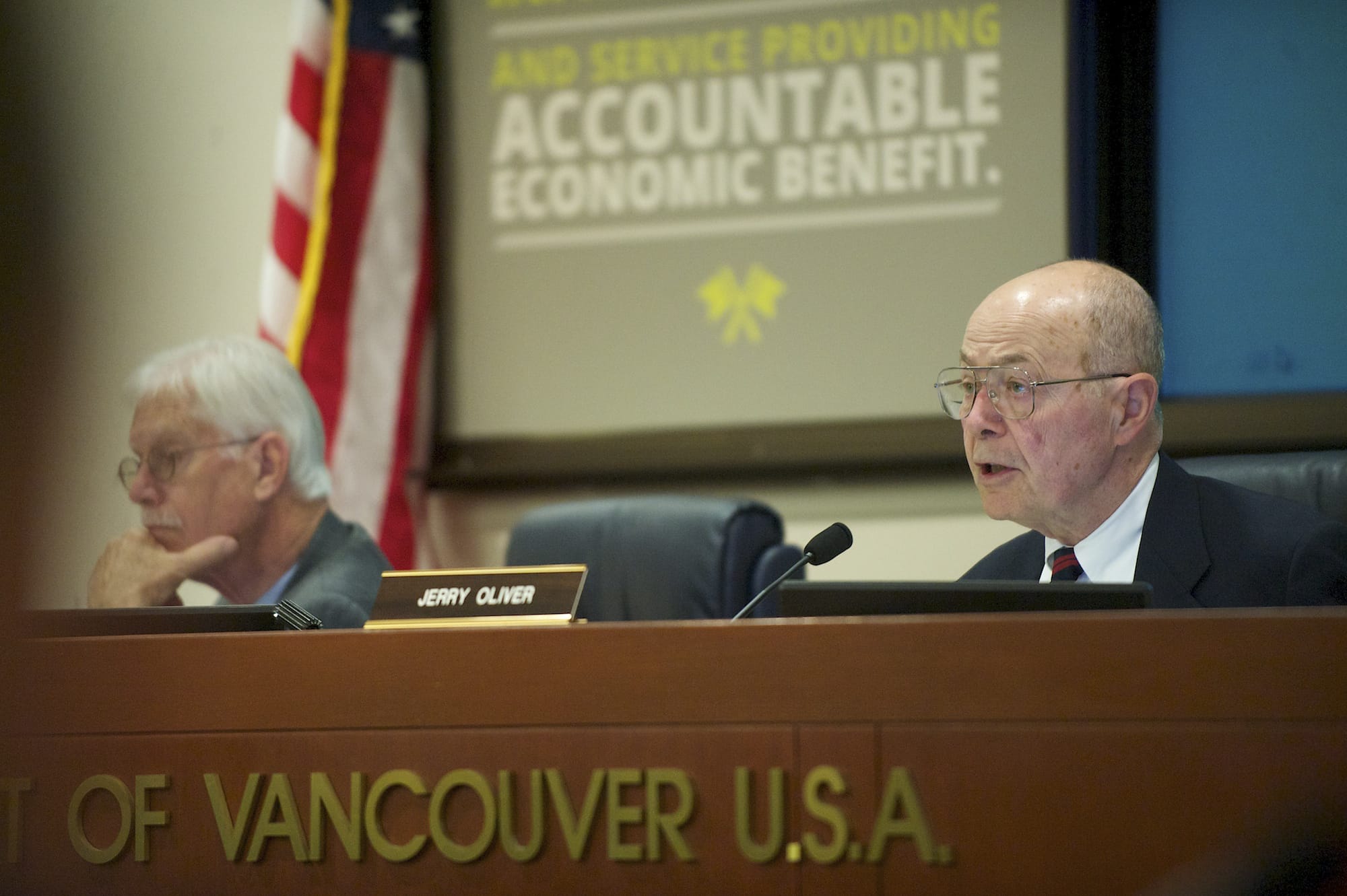The Washington State Auditor’s Office says it won’t investigate a complaint filed by a Vancouver resident about the Port of Vancouver’s closed-door discussion of a lease to build the Northwest’s largest oil transfer terminal.
The reason: The port is embroiled in a lawsuit filed by environmental groups over the port commission’s use of an executive session during a July 22 public hearing to discuss terms of a lease with Tesoro Corp. and Savage Companies.
Thomas Shapley, a spokesman for the Auditor’s Office, said the agency doesn’t want to interfere with the litigation, preferring instead to let the issue be resolved in court. “It doesn’t make any sense for us to get involved,” he said.
Shapley’s remarks come as the Auditor’s Office has released two separate reports that give the port a clean bill of health on its financial statements and compliance with federal laws, and on accountability issues, including the port’s compliance with state grant requirements and with the state’s open public meetings law.
Theresa Wagner, the port’s communications manager, said Friday that the executive-session citizen complaint — prompted by a July 31 story in The Columbian that revealed the port’s apparent violations of open public meetings law — came up last week during an exit interview between the Auditor’s Office and port officials regarding the audit reports.
The Auditor’s Office told the port it would let the legal process resolve the executive-session issue, Wagner said. The office also told the port that it had reviewed procedures the port implemented immediately after concerns were raised about its handling of the July 22 executive session, Wagner said, and that those improvements were appropriate.
Port Commissioners Nancy Baker, Jerry Oliver and Brian Wolfe took their first unanimous vote to approve the lease during a July 23 public hearing. As a corrective move and in response to alleged violations of state public meetings law, commissioners held a second public hearing on Oct. 22. Again, they voted unanimously to approve the lease, which involves 42 acres and is worth at least $45 million to the port over an initial 10 years.
In early August, about two months before the second lease vote, the port implemented a reference guide aimed at ensuring the proper use of executive sessions. It includes a description of the limited purposes for which the port may use executive sessions and how they are to be incorporated into public hearings.
The port has said it strived to involve the public in the oil terminal decision, inviting public testimony in various ways over a 10-week period that included five public workshops and public votes by commissioners. Vancouver resident Michael Piper, who opposes the Tesoro-Savage plan to build an oil-by-rail facility to handle as much as 380,000 barrels of crude per day, filed the complaint about the port’s executive session Aug. 8.
He said Friday he’s confident the port “now understands open meetings law” and that the lawsuit the port faces puts further pressure on it to comply with the rules. But the July 22 executive session was just one example, Piper said, of the port’s overall lack of engagement with the public on the oil-terminal proposal.
The litigation cited by Shapley, the Auditor’s Office spokesman, as a reason not to investigate Piper’s complaint concerns an Oct. 2 lawsuit filed by Columbia Riverkeeper, Sierra Club and Northwest Environmental Defense Center. The suit alleged the port violated the state’s Open Public Meetings Act and its Environmental Policy Act. In January, Clark County Superior Court Judge David Gregerson dismissed the groups’ environmental-law claim.
However, Gregerson sided with the environmental groups in ruling they may enter a pre-trial discovery phase in pursuit of their allegation that the port commissions’ July 22 executive session was illegal. The groups have not dropped their lawsuit under the state’s environmental law. On April 11, they filed a notice of appeal.




